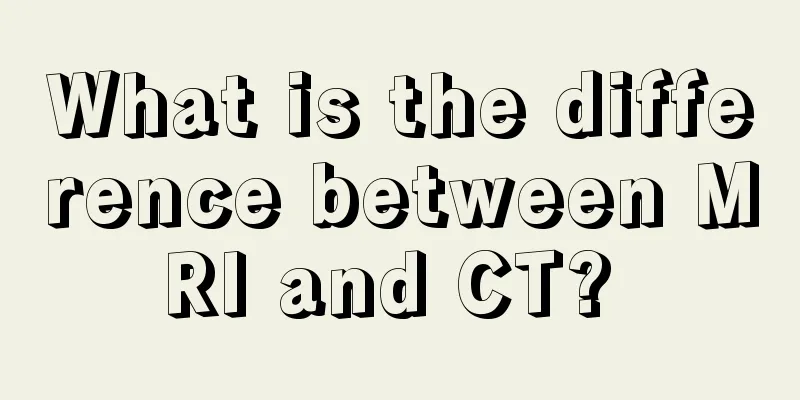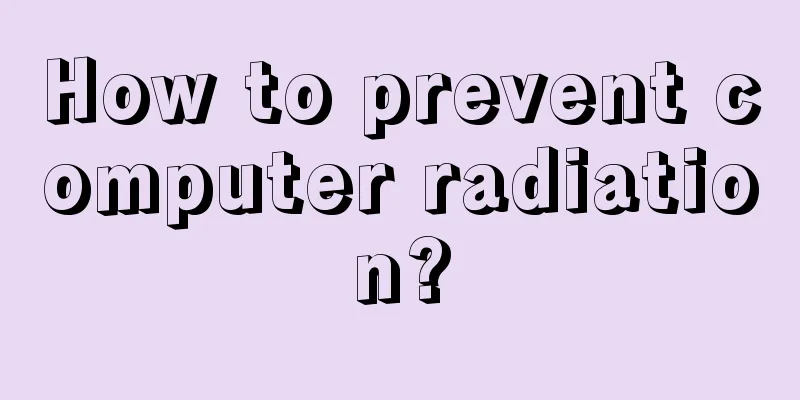What is the difference between MRI and CT?

|
When the human body has some serious diseases, it is usually necessary to go to the hospital for scientific examination. In recent years, medical technology has developed very rapidly, and the ability to scientifically examine physical diseases has become stronger and stronger. For example, everyone knows about MRI and CT examinations. If you have not learned relevant professional knowledge, you are very unfamiliar with these medical examination items. The following is a detailed introduction to the differences between MRI and CT examinations. What is the difference between MRI and CT? Magnetic resonance imaging (MRI) is an imaging technology that reconstructs images by collecting signals generated by the magnetic resonance phenomenon. Therefore, it is also called spin tomography and nuclear magnetic resonance CT. MRI can visualize lesions that cannot be seen on CT, which is another major development in the field of medical imaging. It is a new imaging diagnostic technology that was only applied in clinical practice in the early 1980s. Compared with CT, it has the unique advantages of no radiation damage, no bone artifacts, multi-faceted and multi-parameter imaging, high soft tissue resolution, and the ability to display vascular structures without the use of contrast agents. It is applicable to almost all diseases of all systems in the body, such as tumors, inflammation, trauma, degenerative lesions and various congenital diseases. It is better than CT in showing brain, spine and spinal cord diseases. It can display the structure of blood vessels without the use of vascular contrast agents, so it is unique in distinguishing between blood vessels, tumors, lymph nodes and vascular structures. It also has a soft tissue resolution capability several times higher than CT, and can sensitively detect changes in water content in tissue components, thus often detecting lesions more effectively and earlier than CT. MRI can clearly and comprehensively display the heart chambers, myocardium, pericardium and other small structures within the heart. It is a reliable method for diagnosing various heart diseases and testing cardiac function. Computed tomography (CT) can accurately detect slight differences in density between various tissues on a cross-sectional anatomical plane. It is an ideal examination method for observing bone, joint and soft tissue lesions. In the diagnosis of arthritis, it is mainly used to examine the spine, especially the sacroiliac joints. CT is superior to conventional X-ray examinations in that it has high resolution and can also perform axial imaging. Because CT has a high density resolution, soft tissues, bones and joints can appear very clearly. In addition, CT can perform axial scanning, so some joints that are difficult to distinguish on traditional X-ray images can be clearly seen on the images. For example, because the articular surfaces of the sacroiliac joints are naturally tilted and curved, and there are overlaps with other tissues, although X-rays may be able to meet the requirements for the sacroiliac joints in most cases, it is sometimes difficult to detect sacroiliitis through X-rays. In this case, CT scans can be performed on patients with problems. |
<<: What is the clinical significance of enhanced MRI?
>>: What are the advantages of superconducting nuclear magnetic resonance?
Recommend
Diagnosis method of early prostate cancer
In recent years, prostate cancer has become one o...
What are the early symptoms of skin cancer
The early symptoms of skin cancer can occur anywh...
What's causing the pain on the right side of your chest? Be careful of these diseases
Do you take chest pain seriously in your life? So...
The downside of Yan Feimei
Smoky eyebrows are a type of eyebrow shape when t...
Several symptoms of esophageal cancer that everyone needs to pay attention to
There are several clinical symptoms of esophageal...
How to treat enuresis in adults? Here are four methods to tell you
In real life, adult enuresis is adult bedwetting....
What are the benefits of washing your face with eggs
It is very beneficial to use egg white to apply o...
Simple vibrato method
Friends who are learning songs all hope to have g...
Can I get herpes by wearing a condom?
As we all know, herpes is a viral infection that ...
Can durian and shrimp be eaten together? Why?
There are some taboos in eating durian, and one o...
Why do lumps appear in the breast?
There are many factors that may cause breast lump...
How long can a patient with tongue cancer live?
Every patient with tongue cancer is actively coop...
"Lesser Heat and Greater Heat, steaming from above and boiling from below"
Next Monday (July 7) is the Lesser Heat solar ter...
What's wrong with my eyes not being able to focus?
Nowadays, many people often experience blurred vi...
Lip wrinkle removal, this method is effective
The originally delicate face, paired with the wri...









